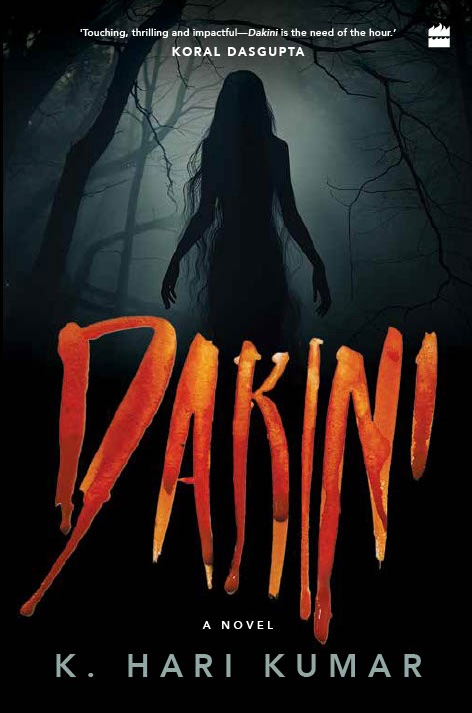
SOON TO BE MAJOR MOTION PICTURE.
While investigating a spate of unexplained deaths in a remote village, Mumbai-based journalist Mamta learns of the dakini: a bloodthirsty entity that haunts the surrounding forests, leaving mutilated corpses in her wake.
As the villagers’ terror grows, so does their dangerous suspicion of women. With lives on the line, including her own, Mamta is dragged into a race against time-all whilst trying to escape her traumatic past, which threatens to turn her own mind against her.
By bestselling horror writer K. Hari Kumar, Dakini is a thrilling depiction of human courage in the face of terrifying adversity, and of superstition dwarfed by the power of the supernatural. It is a tale that is not easily forgotten.
Pages: 368 Language: English Publisher: HarperCollins



FAQ by the author
Read only after you finish reading Dakini – the novel.
Is there a playlist?
Yes, I had a playlist that I used while writing this book. It features songs in English (Rock mostly), Sanskrit (Carnatic Progressive), Hindi, Malayalam, and Kannada. You can listen to it on Spotify here: https://open.spotify.com/playlist/2U1…
What is the genre of this book?
Dakini is an Indo-Gothic epic horror that blends suspense and fantasy, drawing inspiration from Hindu mythology and folklore. It weaves a parallel psychological narrative, creating a unique reading experience that is both chilling and thought-provoking. It is a layered work that offers a complex interplay between the supernatural and the psychological, giving readers an experience where, as Stephen King once said, “Monsters are real, and ghosts are real too. They live inside us, and sometimes, they win.” This fusion of myth and the mind sets Dakini apart from traditional horror, adding depth to the genre.
Is the adivasi (tribal) village in the book real?
The village of Birpoor, the nearby Kalibann forest, and the town of Lakhanganj are all fictional creations. However, they draw inspiration from real locations in the Terai region, a belt of marshy grasslands, savannas, and forests located at the base of the Himalayas in northern India and southern Nepal. To learn more about this unique region, you can visit: https://www.britannica.com/place/Tarai
Are the adivasi (tribal) community and balis (septs) mentioned in Dakini fictitious?
Yes, the Adivasi community mentioned in Dakini is fictitious. While Dakini may draw inspiration from the real Adivasi communities, the portrayal of the community and its cultural elements in the story is a work of fiction. The term ‘Adivasi’ broadly refers to indigenous communities in India, but the specific group depicted in the narrative is not meant to represent any actual tribe or community.
Is the tree called Muloni real?
The Muloni is a fictional tree, though it draws inspiration from real sap-producing deciduous trees. Its concept, particularly the sap and flower, is inspired by Kerala’s famous Paalamaram, or devil’s tree. This idea was then adapted to fit the types of trees found in the region where the story takes place, leading to the creation of the Muloni tree.
Is the protagonist inspired by a real life character?
Mamta, the protagonist of Dakini, is inspired by not one, but three remarkable individuals. One of them is a Padma Shri awardee activist known for her work in uplifting women. Another is a journalist friend of mine, while the third is someone very close to me, whose identities must remain undisclosed. Together, they form the essence of Mamta’s character.
SPOILERS
Is the villain named after a god?
No, he is named after a demon—refer to his second name for the connection.
Is there a second part?
No, but ‘She’ll be back’.